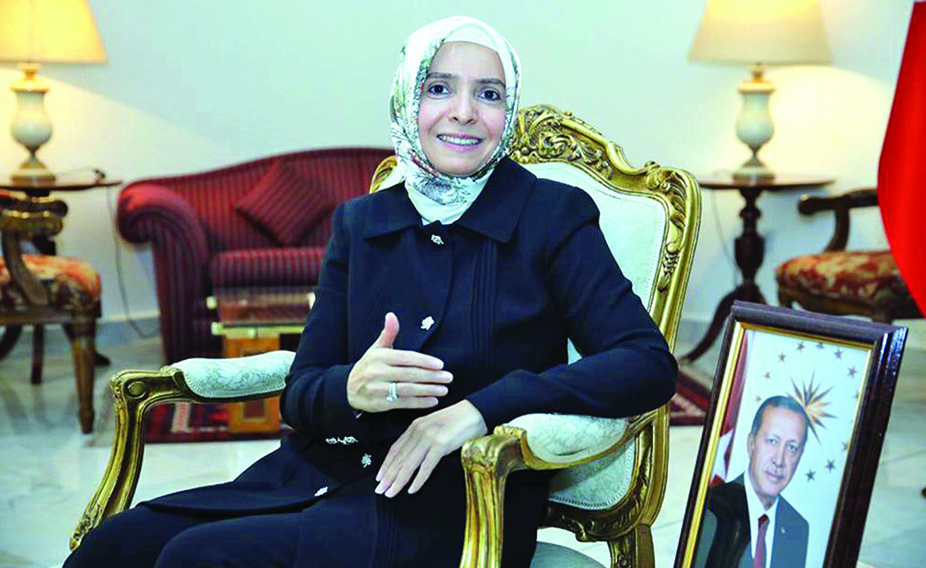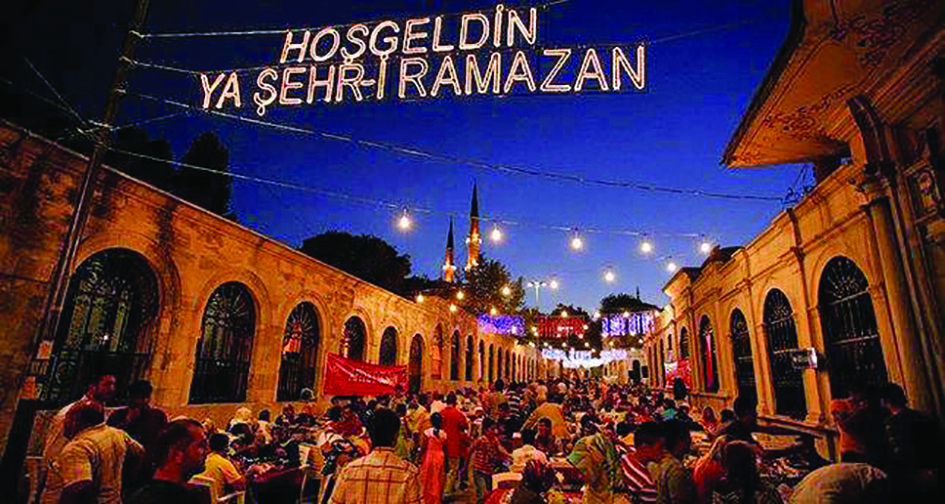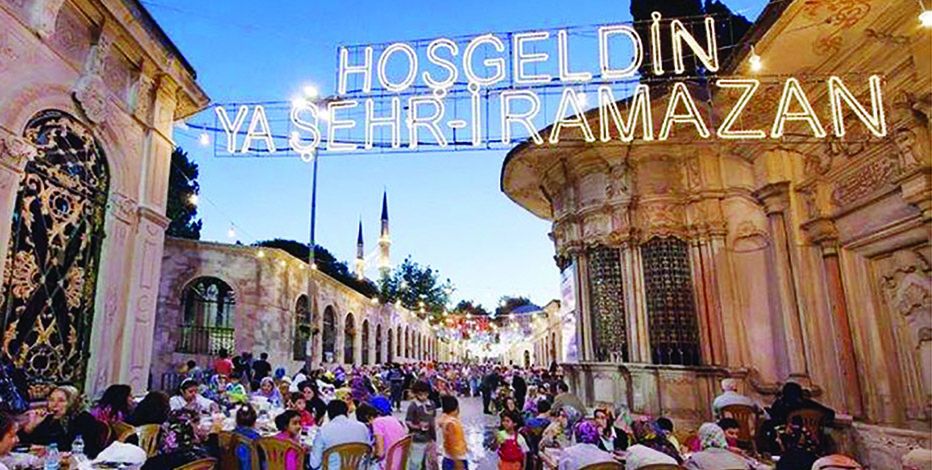By Faten Omar
KUWAIT: Ambassador of Turkey to Kuwait Ayse Hilal Sayan Koytak spoke to Kuwait Times about her experience and views about Kuwaiti culture and Ramadan traditions in both countries. "In Turkey, we popularly refer to Ramadan as 'Sultan of Eleven Months', emphasizing the divine character of this month," she said.
"Muslims of Turkey know that the holy month of Ramadan entails more than just fasting and praying. On the individual level, Ramadan takes on a deep, spiritual meaning, offering a great opportunity for introspection, reflection and moral growth. On the social level, Ramadan reminds us of our social responsibilities, fills our hearts with compassion and encourages stronger bonds within our communities. This is where Ramadan traditions play a particularly important role, as they foster collective consciousness and spirit of togetherness among us," she added.
 Turkish Ambassador to Kuwait Ayse Hilal Sayan Koytak speaks to Kuwait Times.
Turkish Ambassador to Kuwait Ayse Hilal Sayan Koytak speaks to Kuwait Times.
Ramadan will not be a muted occasion as it was in the last two years of the pandemic for Muslims, where traditions and rituals have largely returned after being scaled back. "The past two years have shown in a rather bitter way that without traditions, Ramadan is less joyful and missing something. Due to pandemic restrictions, we could not come together and socialize as we wished. We had to endure separation at a time when togetherness is almost everything. However, inshallah this Ramadan is different as we are cautiously returning to the pre-pandemic days amid a promising decline in cases around the world," Ambassador Koytak noted.
She pointed out that Ramadan's rituals and traditions are not merely acts of joy or kindness - they have a deep social meaning as well. This is particularly true for Kuwait, where centuries of Ramadan traditions are very well-preserved and are still viewed as an opportunity to bring members of the community closer. "This is my fifth Ramadan in Kuwait, the country I consider to be my second home. I remember the first time I observed Ramadan in Kuwait - it was very pleasing to feel at home, thanks to the cultural and traditional similarities between Turkey and Kuwait," Koytak said.
"Like Turkey, Kuwait has many beautiful Ramadan traditions that have stood over generations. But the most popular of these traditions is the diwaniya, which has a history dating back to the early 1800s," she said. Diwaniyas are purposefully-designed, open-to-public places of social gathering where people come together to discuss issues related to them.
Koytak said in Ramadan, diwaniyas have become a focal point for social interactions, as people visit each other in diwaniyas to exchange greetings, inquire after someone they haven't seen for a while, and appreciate loved ones over tea or coffee. "To me, diwaniyas are symbols of Kuwaiti hospitality and generosity, which I have always appreciated. All visitors are welcomed warmly, foods and drinks are served to guests, and the host sees visitors off with nice words. I also appreciate the rich diversity of diwaniyas where Kuwaitis and friends of different backgrounds meet and greet each other and chat about daily matters," she said.
The ambassador likes to witness Kuwaitis' interest in her country. "In diwaniyas, I like to listen to Kuwaitis' memories of Turkey and their future travel or study plans. I believe diwaniyas are more than a casual social gathering. They play an important social role in protecting young generations of Kuwaitis from being alienated from their community during the digital age. I am particularly impressed by youth participation in diwaniyas. It is nice to observe that people in Kuwait are proud to continue this tradition," Koytak added.






